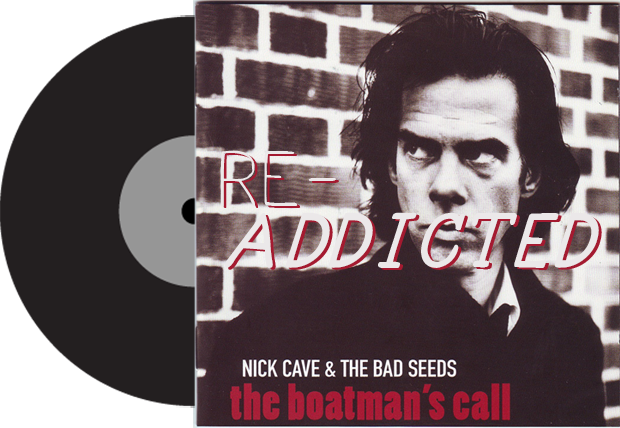
When I first listened to Nick Cave, I was in it purely for the darkness. The misery, the pain, the howling angst and the discordant noise of his early works with The Birthday Party and The Bad Seeds hooked me — sure, “The Ship Song” is pretty, but I wanted to listen to “The Mercy Seat” again. It was years into my Nick Cave obsession before The Boatman’s Call finally took hold of me.
The record is quiet and intimate, qualities that are miles away from the terror-filled Murder Ballads Cave released just a year before. Trading his usual noise for a piano, and stories of rape, murder and desolation for religious pondering, introspection and heartbreak, The Boatman’s Call is poignant, beautiful and poetic, words never before associated with Cave’s records. Simply put, it’s a career-defining masterpiece from an artist who tends to release nothing but career-defining masterpieces.

The twelve tracks on The Boatman’s Call include some of the most beautiful love songs and heartbreaking dirges ever heard. From the paring of love and God in “Into My Arms”, to the awe and wonder of “Are You The One That I’ve Been Waiting For” and the simple elegance of “Black Hair”, each love song is steeped in romance and bliss. The sweet elegance of the love songs sit side-by-side with mournful sighs and songs that perfectly capture the loneliness of heartbreak, making each theme more powerful. After all, “I don’t believe in the existence of Angels / but looking at you I wonder if that’s true” is made more haunting and tragic with the reminder one song later that “People just ain’t no good.” Cave’s poetry is unmatched, and he truly lets it shine on The Boatman’s Call.
Cloaked in heartbreak and wrestling with religious doubts, Cave presents God in nearly every song. Whether using subtle gothic and biblical imagery or overtly including those themes, the presence weighs over the whole of the album both lyrically and instrumentally — there’s a religious stillness, a quietude, that begs spiritual connection. It’s a record of great sadness but also great contentment and catharsis. It wraps around you, warms you and connects with you.
I started and stopped this piece about a hundred times — started with a hundred different antidotes of when this album’s exquisite sadness spoke to me. Remembered the times when I laid on my floor with a glass of whiskey and just listened, letting Nick Cave’s voice and piano bury me and connect me with its quiet beauty. Re-Addicted isn’t the right word to describe my relationship with this record, as I’ve never been un-addicted. This is one of the few albums I’ve always come back to, no matter where I am or what I need. It’s one of the albums that has spoken to me the loudest and the longest.

Last month, Nick Cave & the Bad Seeds released their 15th studio album, Push the Sky Away. The record is another spectacular effort that mirrors the stillness and mellow mood of The Boatman’s Call. Overall, though, a Nick Cave fan is never wanting for too long — when not working with the Bad Seeds, you can find him recording with his garage rock group Grinderman or recording soundtracks with fellow Bad Seed and Grinderman Warren Ellis. If that’s not enough, he also wrote the dark and violent revisionist western films The Proposition and last year’s Lawless (for which he also did the soundtracks) and novels like The Death of Bunny Monroe.

Nick Cave has been recording since the late 70s, and his influence can be felt in songwriters far and wide. Though it’s hard to find another artist that matches him in scope, there are plenty that have been directly influenced by his work. PJ Harvey, whose affair with Nick Cave inspired The Boatman’s Call, is a wonderful place to start. Her creativity and songwriting often mirrors Cave’s, and it’s easy to hear their influences on each other. The sparse introspection of her 2007 release White Chalk is absolutely captivating. Mark Lanegan’s voice is often compared to Cave’s deep growl, and his 2004 record Bubblegum has a similar dark feel to many of Cave’s records. But honestly, you can’t get anything quiet like Nick Cave from anyone else.

